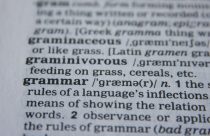May Vs. Might? Which One Should You Use?

If your friends ask you where you are going on vacation this year, would your response be: “We may go to Disneyland,” or “We might go to Disneyland.”? What’s the difference, I hear you ask.
For many writers, the terms are interchangeable. For others, “may” is regarded as the more polite term (“Mother, may I?”) and is used accordingly. Unfortunately, neither approach is correct since these terms are different in both grammatical meaning and usage.
“May” or “Might”? No More a Confusion!
The confusion of when to use “may” and “might” is not new to the writing world. But the easiest way to use the two words correctly is remembering that “might” suggests a lower possibility than “may”
When to Use “May” in a Sentence?
- To express factual or more likely to be possible situations
“The weather may change tomorrow.”
- To ask and give permission
“May I have those forms, please?” (asking permission)
You may download those forms from the website. (granting permission)
When to Use “Might” in a Sentence?
- To express a hypothetical, counterfactual, or remotely possible situation
“We might go to the research convention.”
- It is also used as a past tense of “may”
“He might have visited the laboratory yesterday.”
Present vs. Past Tense
The grammatical distinction between the two words is tense-based—might is the past tense of may. Incorrect usage in this context is fairly rare because a native speaker would catch the error almost immediately:
- Incorrect usage: I thought I may go to the game
- Correct usage: I think I may go to the game or I thought I might go to the game
Related: Having trouble with language and grammar in your research paper? Get help from native language experts now!
Usage of May and Might When Expressing Possibility
The usage distinction between the two lies in the degree of likelihood that something will occur. Despite many writers being convinced of the opposite relationship, something that may happen is seen as being more likely than something that might happen. Politeness or formality has no influence on this rule:
- You may go the wedding reception if there is a cash bar
- You might go to the wedding reception if there is an open bar (and you will not have to pay for your drinks).
- You might go scuba diving in the Caribbean on your next vacation (once you get over your fear of water and get certified as a SCUBA diver).
- You may go to the aquarium next weekend to see the underwater sea life in a much safer environment.
A useful tip to remember the difference is that if something will be a mighty stretch for you to make (i.e., the likelihood of making it is very low), use might.
Exceptions
As with most rules in English grammar, there are a couple of exceptions:
- Since “might” is the past tense of “may,” you would use might in place of may when referring to something in the past, irrespective of the degree of probability that something actually happened: Peter and Jane might have fallen in love at first sight.
- If there is an implication of permission in the statement being made, using may could be interpreted as an indication that you do not have permission rather than the likelihood that it will happen. For example: “I may not have a second slice of pie for dessert,” could mean that you probably will not have a second slice or that you are not allowed to have one.
So, as a guiding practice, may is more likely than might.
Keep these tips in mind while penning down your next manuscript or even a letter to your friend, and let us know if this helped you in using the two words correctly. Share your thoughts with us in the comments section below! You can also visit our Q&A forum for frequently asked questions related to different aspects of research writing and publishing answered by our team that comprises subject-matter experts, eminent researchers, and publication experts.









Thanks. Comprehensive, helpful, and easy to understand
So if “might” is the past tense of “may”, is there ever an occasion to say, “may have”?
Or is it always “might have”?
Hi,
Thank you for sharing your query with us. Both “may” and “might” are used when we are talking about anything in future, whose occurrence might be uncertain or asking for a permission.
Example: Jack may be coming to see us today.
May I visit you today?
Generally both “may have” and “might have” are used interchangeably in American English, to describe any possibilities or guesses with respect to events that have already occurred in the past.
Example: I can’t see your mail, it may have gone to the Spam folder.
Therefore, the use of “may” is different from that of “may have”. Similarly, “might” is used differently from the way “might have” is used in sentences.